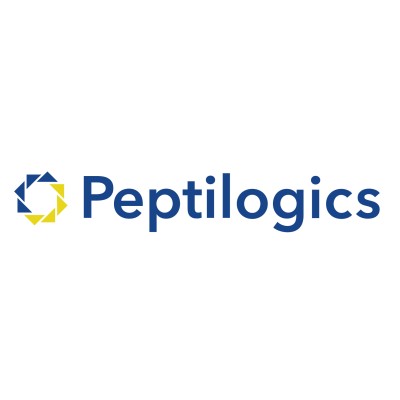Peptilogics Secures $78M to Advance Breakthrough PJI Therapy Zaloganan
October 18, 2025, 3:53 pm
Peptilogics, a clinical-stage biotechnology firm, closed an oversubscribed $78 million Series B2 funding round. This capital propels zaloganan (PLG0206), its lead candidate, toward a pivotal Phase 2/3 clinical trial. Zaloganan targets prosthetic joint infections (PJI), a severe and costly orthopedic complication. Current treatments for PJI often fail. Zaloganan eliminates problematic bacterial biofilms, a significant innovation. The therapy showed 93% infection-free rates in a Phase 1b study. This funding, from investors like Presight Capital and Founders Fund, underscores confidence in Peptilogics' potential to redefine surgical infection care and combat rising antibiotic resistance. The company holds QIDP, Orphan Drug, and Fast Track designations, signaling an expedited path for this breakthrough PJI solution.
A significant capital infusion marks a new chapter for Peptilogics. The Pittsburgh-based biotechnology company secured $78 million in Series B2 financing. This oversubscribed round underscores investor confidence. Presight Capital, Thiel Bio, and Founders Fund led the investment. New participants included AMR Action Fund, Narya Capital, and Beyond Ventures. The funding elevates Peptilogics’ total equity to approximately $120 million. Substantial grant support from CARB-X further aids its mission. This capital injection has a clear purpose: advancing zaloganan (PLG0206). Zaloganan is Peptilogics’ investigational therapy. It targets prosthetic joint infections, known as PJI. The funds will fuel a crucial Phase 2/3 pivotal clinical trial. This represents a critical step for a potential market-defining solution.
Prosthetic joint infections pose a formidable challenge in modern medicine. These infections occur after joint replacement surgery. They transform successful procedures into prolonged medical crises. Estimates suggest 45,000 PJI cases annually in the United States. Patients endure multiple surgeries, extended hospitalizations, and costly rehabilitation. Treatment expenses can soar, often exceeding $390,000 per patient. The financial burden is immense. Patient quality of life diminishes significantly. Currently, no FDA-approved therapeutic specifically targets PJI. This leaves a critical unmet medical need.
Existing interventions fall short. Debridement, antibiotics, and implant retention (DAIR) offers limited success. Its failure rate hovers around 50 percent. Two-stage revisions, another common approach, still fail in up to 25 percent of cases. These methods struggle against the core problem: bacterial biofilms. Biofilms are protective bacterial shields. They render most conventional antibiotics ineffective. Bacteria hide within these structures. They resist drug penetration and immune system attacks. This resistance makes PJI exceptionally difficult to treat. The medical community urgently seeks innovative solutions.
Peptilogics’ zaloganan offers a novel approach. It directly targets these problematic biofilms. Zaloganan’s mechanism eliminates the bacterial shield at the infection site. This action allows the therapy to overcome antibiotic resistance. It attacks bacteria where other drugs cannot. Early clinical data shows immense promise. A Phase 1b study evaluated zaloganan. The therapy was administered via irrigation during DAIR procedures. Results were compelling. Thirteen of fourteen patients (93 percent) remained infection-free. This sustained freedom from infection lasted for 12 months. Such outcomes pave the way for advanced clinical development.
The company now prepares for a pivotal Phase 2/3 trial. This trial will be randomized and placebo-controlled. It plans to enroll 240 patients. Enrollment begins in December 2025. The primary endpoint will measure reductions in clinical failure rates. Secondary analyses will assess vital health economics. These include hospital stays, readmission rates, and overall surgical burden. Success in this trial could redefine PJI treatment standards. It offers hope for countless patients.
Peptilogics benefits from strategic regulatory designations. Zaloganan holds Qualified Infectious Disease Product (QIDP) status. It also received Orphan Drug designation. Furthermore, it secured Fast Track status. These designations accelerate the pathway to market approval. They also offer potential extended market exclusivity. This regulatory support highlights zaloganan’s critical importance. It underscores the urgent need for new PJI therapeutics. The FDA recognizes its potential impact.
The market for effective infection management solutions continues to expand. Global demand for joint replacements is surging. Projections indicate a sharp rise. The U.S. alone expects 3.48 million knee procedures annually by 2030. Hip replacements could reach 572,000 by the same year. More joint replacements mean a higher potential incidence of PJI. This trend amplifies the need for breakthrough therapies. Zaloganan stands to address this growing demand.
Investors view zaloganan as a significant opportunity. They see it as both a clinical breakthrough and a market-defining product. These investors previously supported leading biopharma innovators. Their confidence validates Peptilogics’ scientific foundation. It affirms its substantial commercial potential. Zaloganan aims to transform surgical infection care. It seeks to reduce the strain on healthcare systems worldwide. This investment reflects a belief in a new category of surgical therapeutics.
Peptilogics’ mission centers on redefining surgical therapeutics. The company focuses on infections that current antibiotics fail to treat effectively. Hardware-related infections like PJI present a unique challenge. Bacteria hide on foreign surfaces, forming drug-resistant biofilms. Zaloganan’s design specifically tackles this mechanism. It quickly penetrates the biofilm. It kills the hidden bacteria. This localized action is critical.
The company's leadership emphasizes the distinct nature of hardware-related infections. They represent a huge unmet need. This unique landscape makes antibiotic development viable. Zaloganan’s advancement signifies a major stride. It promises to alleviate suffering. It seeks to reduce the enormous healthcare costs associated with PJI. This innovative approach offers a path forward. It provides hope for better patient outcomes. Peptilogics is poised to lead this medical revolution. Its impact could be profound.
A significant capital infusion marks a new chapter for Peptilogics. The Pittsburgh-based biotechnology company secured $78 million in Series B2 financing. This oversubscribed round underscores investor confidence. Presight Capital, Thiel Bio, and Founders Fund led the investment. New participants included AMR Action Fund, Narya Capital, and Beyond Ventures. The funding elevates Peptilogics’ total equity to approximately $120 million. Substantial grant support from CARB-X further aids its mission. This capital injection has a clear purpose: advancing zaloganan (PLG0206). Zaloganan is Peptilogics’ investigational therapy. It targets prosthetic joint infections, known as PJI. The funds will fuel a crucial Phase 2/3 pivotal clinical trial. This represents a critical step for a potential market-defining solution.
Prosthetic joint infections pose a formidable challenge in modern medicine. These infections occur after joint replacement surgery. They transform successful procedures into prolonged medical crises. Estimates suggest 45,000 PJI cases annually in the United States. Patients endure multiple surgeries, extended hospitalizations, and costly rehabilitation. Treatment expenses can soar, often exceeding $390,000 per patient. The financial burden is immense. Patient quality of life diminishes significantly. Currently, no FDA-approved therapeutic specifically targets PJI. This leaves a critical unmet medical need.
Existing interventions fall short. Debridement, antibiotics, and implant retention (DAIR) offers limited success. Its failure rate hovers around 50 percent. Two-stage revisions, another common approach, still fail in up to 25 percent of cases. These methods struggle against the core problem: bacterial biofilms. Biofilms are protective bacterial shields. They render most conventional antibiotics ineffective. Bacteria hide within these structures. They resist drug penetration and immune system attacks. This resistance makes PJI exceptionally difficult to treat. The medical community urgently seeks innovative solutions.
Peptilogics’ zaloganan offers a novel approach. It directly targets these problematic biofilms. Zaloganan’s mechanism eliminates the bacterial shield at the infection site. This action allows the therapy to overcome antibiotic resistance. It attacks bacteria where other drugs cannot. Early clinical data shows immense promise. A Phase 1b study evaluated zaloganan. The therapy was administered via irrigation during DAIR procedures. Results were compelling. Thirteen of fourteen patients (93 percent) remained infection-free. This sustained freedom from infection lasted for 12 months. Such outcomes pave the way for advanced clinical development.
The company now prepares for a pivotal Phase 2/3 trial. This trial will be randomized and placebo-controlled. It plans to enroll 240 patients. Enrollment begins in December 2025. The primary endpoint will measure reductions in clinical failure rates. Secondary analyses will assess vital health economics. These include hospital stays, readmission rates, and overall surgical burden. Success in this trial could redefine PJI treatment standards. It offers hope for countless patients.
Peptilogics benefits from strategic regulatory designations. Zaloganan holds Qualified Infectious Disease Product (QIDP) status. It also received Orphan Drug designation. Furthermore, it secured Fast Track status. These designations accelerate the pathway to market approval. They also offer potential extended market exclusivity. This regulatory support highlights zaloganan’s critical importance. It underscores the urgent need for new PJI therapeutics. The FDA recognizes its potential impact.
The market for effective infection management solutions continues to expand. Global demand for joint replacements is surging. Projections indicate a sharp rise. The U.S. alone expects 3.48 million knee procedures annually by 2030. Hip replacements could reach 572,000 by the same year. More joint replacements mean a higher potential incidence of PJI. This trend amplifies the need for breakthrough therapies. Zaloganan stands to address this growing demand.
Investors view zaloganan as a significant opportunity. They see it as both a clinical breakthrough and a market-defining product. These investors previously supported leading biopharma innovators. Their confidence validates Peptilogics’ scientific foundation. It affirms its substantial commercial potential. Zaloganan aims to transform surgical infection care. It seeks to reduce the strain on healthcare systems worldwide. This investment reflects a belief in a new category of surgical therapeutics.
Peptilogics’ mission centers on redefining surgical therapeutics. The company focuses on infections that current antibiotics fail to treat effectively. Hardware-related infections like PJI present a unique challenge. Bacteria hide on foreign surfaces, forming drug-resistant biofilms. Zaloganan’s design specifically tackles this mechanism. It quickly penetrates the biofilm. It kills the hidden bacteria. This localized action is critical.
The company's leadership emphasizes the distinct nature of hardware-related infections. They represent a huge unmet need. This unique landscape makes antibiotic development viable. Zaloganan’s advancement signifies a major stride. It promises to alleviate suffering. It seeks to reduce the enormous healthcare costs associated with PJI. This innovative approach offers a path forward. It provides hope for better patient outcomes. Peptilogics is poised to lead this medical revolution. Its impact could be profound.

